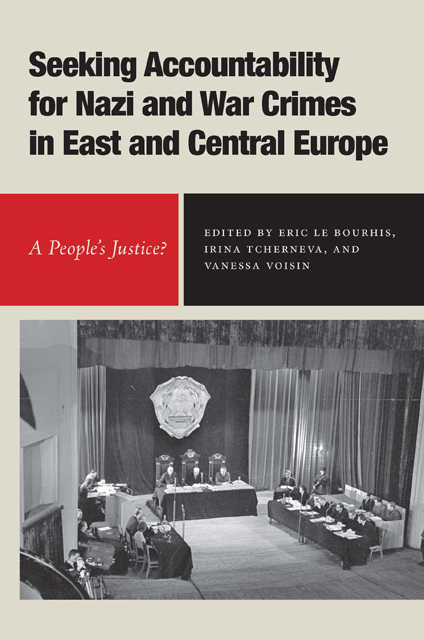9 - Mediators behind the Scenes: The World Jewish Congress and the International Auschwitz Committee during the Preparations for the First Auschwitz Trial in Frankfurt
Published online by Cambridge University Press: 20 December 2022
Summary
From December 1963 to August 1965, the so-called first Frankfurt Auschwitz trial took place, the first major trial in the second wave of Nazi crimes trials in West Germany. It was an exceptional case in several respects and has gained some prominence over the years. After a hesitant start, prosecutors pursued very extensive investigations. The attorney general of the state of Hesse, Fritz Bauer, wanted this trial to provide a comprehensive legal and historical clarification of the Auschwitz crime complex. He commissioned young public prosecutors with no professional roots in the National Socialist era for this task. More than two hundred Auschwitz survivors testified as witnesses in the courtroom—something that had never before happened on this scale in West Germany. The four historical reports commissioned by Bauer were for a long time the standard works of West German historians on Nazi crimes and their organizational preconditions. The response from the West German public and the media was tremendous. For many years, this trial was regarded as a kind of turning point, when the general public finally began to recognize the crimes of the Germans against the Jews and in the East European territories occupied by Germany, and when the judicial system began taking decisive steps against the perpetrators. This perception of the Auschwitz trial as a cathartic moment in West Germany’s postwar history is now rightly being called into question. The judgment was groundbreaking in its depictions of historical events, but ultimately disappointing in the judicial consequences. In the end, not much had changed in the judiciary (if at all, rather for the worse), and public attention to Nazi-era crimes soon decreased again.
What is certain, however, is that the Auschwitz survivors themselves, their organizations, and also the international Jewish and victims’ associations reacted vigorously to the investigations and participated in a unique way in the preparations for this trial. The mobilization of this large number of witnesses from numerous countries and from almost all prisoner groups was principally the consequence of the work of former Nazi persecutees and their organizations. The same applies to other aspects of the trial that were particularly important for the investigations or that attracted significant public attention: access to documents from East European archives, the large number of coplaintiffs (Nebenkläger), and the visit of the court to the Auschwitz crime scene.
- Type
- Chapter
- Information
- Seeking Accountability for Nazi and War Crimes in East and Central EuropeA People’s Justice?, pp. 320 - 350Publisher: Boydell & BrewerPrint publication year: 2022



